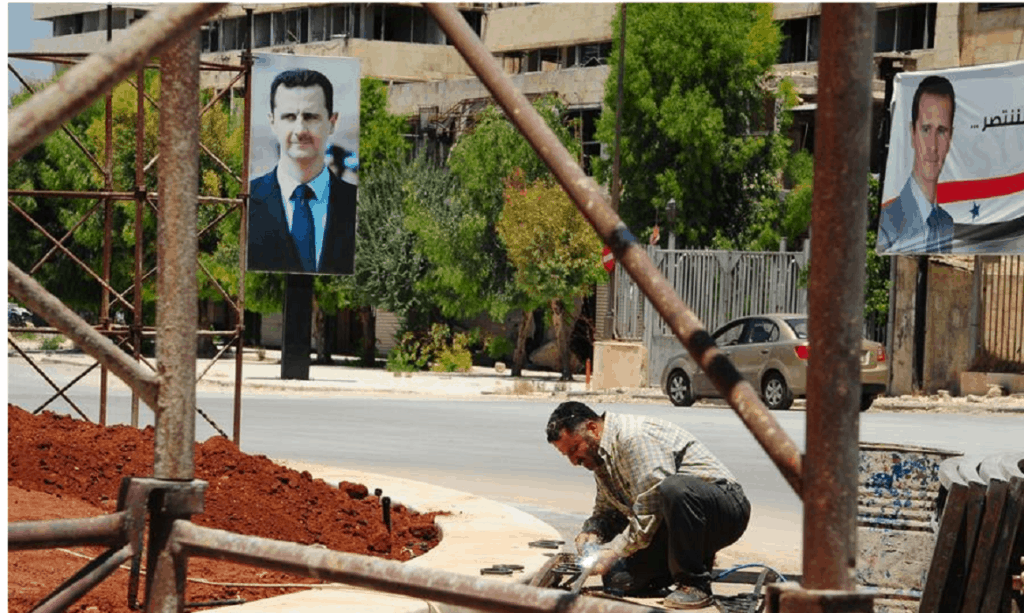By Denis Korkodinov
The conflict in Syria in the medium term is likely to end in favor of Bashar al-Assad. However, it will take considerable time to overcome the consequences of this conflict. The country’s economy, which depends on assistance from Tehran, is almost completely destroyed. However, the US-Iranian confrontation significantly weakened the Ayatollah regime, as a result of which he was unable to provide Syria in the previous volumes. This is a significant difficulty for Damascus.
Currently, economic development is observed only in those areas of Syria where Bashar al-Assad can control the situation and mood among the local population. This applies primarily to the territory of the Syrian capital, the coastal strip of the Mediterranean Sea and the western provinces. The remaining areas are mainly in opposition to Damascus or occupied by external forces (USA, Turkey), which reject cooperation with the regime of Bashar al-Assad. In addition, the barrier to economic growth in Syria is the sanctions imposed by the United States. As a result, the Syrian economy is at its lowest level, which repels most of the international investors.
Trying to correct the existing situation, the command of the Syrian Arab Army makes every effort to establish control over all the territories that make up Syria. This is due primarily to economic reasons, since the Syrian territory currently occupied by the militants is not only oil and gas fields, but also the plants, factories and agricultural land that Bashar al-Assad needs to restore the pace of economic development of the state.
If government forces are unable to suppress the resistance of local Sunni groups by force, they try to conclude commercial deals with them, in fact, buying from them the right to use minerals in the occupied areas. Such transactions are very doubtful, but allow for some time to stabilize economic indicators. In addition, Damascus is actively attracting Shiite groups from Iraq and Lebanon in order to exert pressure on Syrian Sunnis.
After the elimination of the main foci of the Islamic State, the Kurds continue to be the main problem for the Bashar al-Assad regime. The Syrian government is forced to buy oil from them at market prices, despite the fact that officially Bashar Assad denies deals with the Kurds. However, now the situation is such that a significant share of Syria’s natural resources is under the control of Kurdish armed forces. For this reason, Damascus, despite formal objections, was not opposed to Turkey launching hostilities against the YPG during Operation Source of Peace. This solved the problem for the Syrian government related to the control of oil fields and the neutralization of the Kurdistan independence project.
Now the ISIS problem in Syria is rapidly losing its relevance. However, there are still many disparate Islamic State cells in the country. Their goal now is not so much to fight the regime of Bashar al-Assad, but how to confront Israel. This was probably done in order to give additional motivation to the local Sunnis. However, this motivation did not bring positive results for the Islamic State, since Israel hit most of the terrorist targets during 2018-2019 and continues to operate actively in the region, which in fact forces ISIS to admit defeat. For this reason, the Islamic State in the short term (after 3-5 years) may leave Syria, where it systematically suffers military failures.
Over the past 6 years, the number of liquidated ISIS supporters in Syria has increased by almost 50 percent, and the number of major terrorist attacks involving a terrorist organization has decreased by about 1.5 times. This indicates that ISIS is losing ground in the region, which is noted in accordance with the global terrorism index.
A special place in Syria is occupied by Russian military support. Without Moscow, Damascus would not have been able to organize a large-scale offensive in Idlib, which is currently taking place. The last successful attack of the Syrian Arab Army with the participation of Russia was carried out on the position of militants in Maaret al-Numan, which is located near the border with Turkey. Thanks to this, Damascus was able to provide control over a large part of the M5 highway, which puts Ankara in a very vulnerable position, since Turkey actively used this highway to supply militants affiliated with it. For this reason alone, Recep Erdogan sharply criticized Damascus and Moscow, who largely outplayed him in Syria, making the Turkish military presence difficult.
(The opinions expressed in this article are solely those of the author and do not necessarily reflect the views of World Geostrategic Insights)







